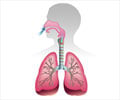Causes Of Anorexia Nervosa
Anorexia is an eating disorder that has no known cause, however, several contributing factors may affect the mental state of the suffering individual.
- Anorexia is more than just a problem with food.
- It's a way of using food or rather not using it so as to feel more in control of one's life and to ease their tension and anxiety.
- While there is no single known cause of anorexia, several reasons may contribute to the development of anorexia-
- Biological Factors - Several biological factors may contribute in the onset the disorder like:
- Hormonal abnormalities -this can lead to:
- Sensitivity to cold
- Slow gastric emptying
- Constipation
- Low blood pressure
- Bradycardia
- Hypothermia
- Genetic Factors - Recent research has shown that in some sufferers a genetic cause may play a role in development of Anorexia, with environmental factors being the trigger factor.
- Culture & Social Factors - Recent trends in fashion have encouraged in perpetuating the image that extreme thinness of the human female body makes them more attractive and beautiful. Collage and schoolgirls may redefine beauty based on the degree of one's thinness.
- Personal feelings - Generally people with anorexia may feel depressed about themselves and feel helpless. They hate the way they look and have an unrealistic expectation of themselves and strive for perfection. They may feel worthless, despite achievements and perceive a social pressure to be thin.
- Stressful events in life- Events in life like starting a new school or job or being teased about traumatic events like rape or mental/physical problems can lead to the onset of anorexia.
- Families - Studies have found that people with mother or sister with anorexia are more likely to develop the disorder. Other family factors include -
- Adolescents, whose parents or close relatives think that appearance is very important may indirectly be influencing the teenager about dieting, body shape and weight loss. Being raised in this environment they develop a tendency to be anorexic.
- Disturbed relationships are found commonly in the families of patients with anorexia nervosa.
Modern anorexia is the biopsychosocial disorder mirroring a society with specific tensions and contradictions: the bourgeois family, supportive yet suffocating, and all the paradoxical hypocrisies of modern attitudes towards youth, food, femininity, beauty and sexuality, are whipped up by the media and by multi-million pound food and style industries. (Roy Porter 1997)



















